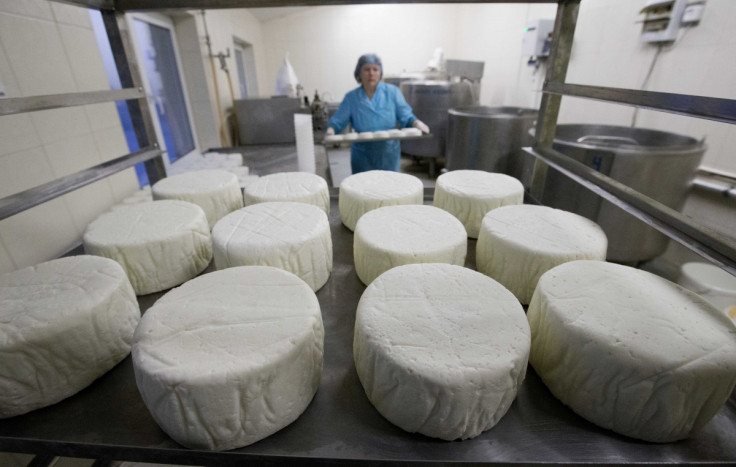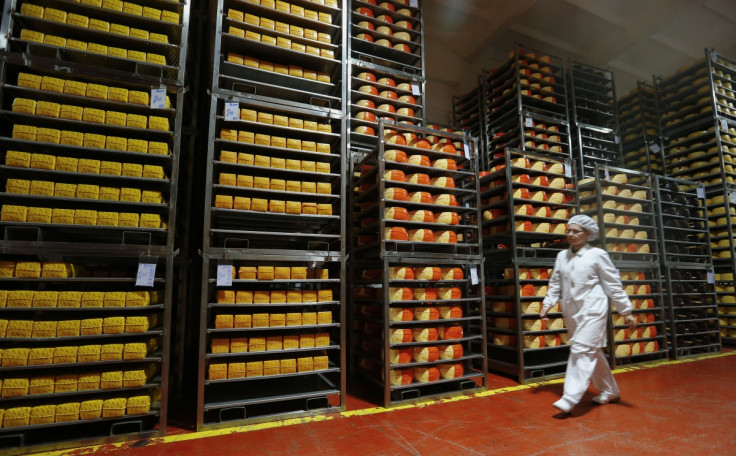Cheese is not 'as addictive as drugs', no matter what 'experts' tell you

Food journalism can often get carried away with itself. Articles about this or that food causing or curing cancer are a common feature of daily newspapers; due to the internet these dubious attempts at headlining science are now shared more quickly and recklessly - as shown this week by the "news" that cheese is addictive.
The article I was originally sent was credited to another site, that, in turn, credited another site as its source. The initial headline was "Dairy Crack: The Science Behind Your Crippling Cheese Addiction", the next site went with "Cheese is as addictive as drugs, says expert", when it got to me the headline yelled out "EXPERTS SAY CHEESE IS AS ADDICTIVE AS DRUGS" - somehow adding extra "experts".
These articles all cited Dr Neal Bernard, founder and president of the Physicians Committee for Responsible Medicine (PCRM). A very cursory search for information about the committee shows an organisation that acts as a campaign group against animal testing, with a number of links to the animal rights group Peta, rather than an objective, scientific committee.
In the early 1990s, the American Medical Association (AMA) even spoke out against PCRM, calling it a "pseudo-physicians group". When IBTimes UK contacted it for confirmation, the AMA confirmed critical statements had been made over 20 years ago but the statements are no longer current.
Even without looking in-depth into the sources and science behind this claim of addictive cheese, you can just read the criticism on the PCRM's Wikipedia page - surely, this is enough to make you think twice before publishing an article that cites them as experts?
The original article's headline suggested there was "science behind" the addiction claim. The articles claim that when your body is attempting to break down casein - the protein in cheese - it can leave behind casomorphins, which can attach to opiate receptors in the brain and your brains treats it "as an addictive substance".
According to Frankie Phillips, registered dietician and spokesperson for the British Dietetic Association, the idea that cheese is addictive is "sort of, maybe, kind of, in the realms of possibility in a model... but there's no evidence that that would happen in people so that kind of breaks down the argument".

Phillips explained what really happens with cheese and those casomorphins. She said: "As with all proteins the body does break them down into their component building blocks." So far so good. She added: "The component building blocks of proteins are amino-acids, so they get broken down into amino acids... [but] it doesn't go directly from proteins to amino-acids, there's an in-between stage called peptides - peptides are small chains of animo-acids." One of these peptides is casomorphin.
"What tends to happen with digestion is that proteins get broken down through the gastrointestinal tract into their constituent animo-acids and for that to have any influence at all on the brain these peptides would need to go through the gastrointestinal tract intact and then go through the blood-stream and then go across the blood-brain barrier still intact," said Phillips, "which is quite unlikely."
Even if that were to happen, it's still not certain whether the casomorphins would react with the opiate receptors in the way described - Philips told us that "the mechanism has been explored in animal models" but there was no evidence from human studies.
Phillips thinks any "addiction" to cheese is simply behavioural rather than at all chemical. She said: "Lots of people think they're addicted to food, people think 'I'm addicted to chocolate, I'm addicted to crisps, I'm addicted to cheese'... simply because we like eating them, it makes us feel happy because we enjoy the taste of it, we enjoy the mouth feel, and we enjoy the link that that food possibly gives us with thinking about happy times.
"We eat cheese after a really nice meal, we go on picnics and have cheese sandwiches, it's the links that we make with the emotional side of eating that can make us think 'oh I'm addicted to it' when simply it means I enjoy eating it."

In a similar vein to the article first mentioned, the LA Times on Thursday posted a piece entitled "Cheese really is crack. Study reveals cheese is as addictive as drugs." Clicking through to the sources of this information finds a mic.com article about a University of Michigan study on highly processed foods.
The study found highly processed foods are "implicated in addictive-like eating behaviour", the list being topped by pizza. The study consisted of groups of people filling out forms that asked about addictive behaviour; they were then asked to pick which foods they had the most problems with by selecting between two pictures.
These foods were ranked - pizza came first, cheeseburgers came seventh, cheese came tenth. One of the study's authors told Mic.com that fat was the main problem but the article decided to continue on cheese and its addictive properties, backed up by none other than Dr Neal Bernard of PCRM.
Another quote on the "addictive element" of cheese taken in the piece, that was then reproduced in the LA Times, was from a registered dietician named Cameron Wells, the original article did not mention that Cameron Wells is the Associate Director of Clinical Dietetics at PCRM, and the LA Times article did not mention PCRM but simply stated: "Cheese happens to be especially addictive because of an ingredient called casein, a protein found in all milk products."
A very quick check on these sources (literally, googling the names) should suggest there is an agenda at play - enough to make naming the sources simply as "experts" spurious. They might purport to be scientifically backed but, as Phillips told me: "You can find science to support anything – whether it's credible science and whether it's repeatable science is another matter."
An article about cheese being addictive is funny, this author found the LA Times article because a friend had shared it on Facebook and tagged another friend - because it was funny, but when facts are shared and widely spread without the scientific backing, we risk leading people to make unhealthy decisions about their diets - when diet is arguably the most important part of your health.
© Copyright IBTimes 2025. All rights reserved.






















